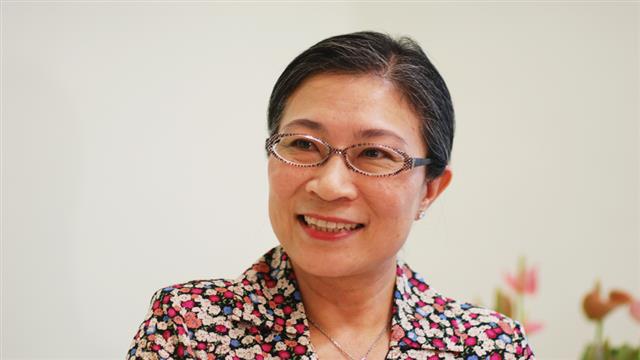After years of debate, a law granting employees paternity leave has finally been passed and written into the Employment Ordinance. From 27 February, new dads employed by private firms are able to claim three days' leave on four-fifths of their usual pay. This policy represents a breakthrough for Hong Kong's employment regulations. However, it doesn't bring much change to people working at CUHK. Since as early as 2008, male staff of the University have been entitled to five days of paternity leave on full pay under a family-friendly leave policy, whereas Hong Kong's civil service introduced the same only in 2012.
What is more enviable is that in addition to paternity leave, the family-friendly leave policy introduced seven years ago also consists of adoption and bereavement leaves. They are extra benefits provided by the University, exceeding statutory requirement, to help employees manage their family responsibilities, and cope with changing circumstances and needs at different stages of life.
For better compliance with the statutory provision, CUHK has taken the opportunity to review its three types of family-friendly leaves and adjust their regulations.
Paternity Leave: Five Days
To be eligible for the five-day leave on full pay, new fathers need to have completed 40 weeks' full-time continuous service at the University before taking time off. That amounts to about 10 months, over two months shorter than the previous one-year service requirement.
Under the old regulations, the leave only applies to childbirth given by the male employee's legal spouse. It has now been revised to any individual whose name is entered as the new-born's father in the birth certificate. The leave is also applicable to births outside Hong Kong.
It allows fathers to take the leave at any time from four weeks before the expected birth date to 10 weeks after the baby's arrival. Leave may be taken in one go or on separate days on a half-day basis. The father has to inform his supervisor three months in advance that he will be taking time off, and submit his leave applications once the days are confirmed to facilitate staffing arrangement.
According to the Personnel Office, there were 90 and 60 male full-time appointees who had new family members born in 2013 and 2014, respectively.
Adoption Leave: Three Days
As with paternity leave, the service requirement of adoption leave has been reduced to 40 weeks of full-time continuous employment. The adopted child should be under 12 years of age, and will be living together with the appointee in Hong Kong.
Applicants should give their supervisors notice of their intention to take adoption leave one month ahead, and submit supporting documents and leave applications as early as practicable. The three-day leave can be taken consecutively or separately, within three months from the adoption date. The leave may be taken on a half-day basis.
Bereavement Leave: Two Days
Under the new regulations, bereavement leave is available without any required minimum length of service to all full-time staff who have lost a close relative, that is, spouse, parent, child, brother, sister, or parent-in-law.
The two-day leave on full pay can be taken separately, with a per-application minimum of half a day.
Information on the updated leave policy is available on the online Staff Handbook at here.
|
'When a colleague needs to take family-friendly leaves, it is also time for his/her team to show support. We encourage open communication and mutual understanding among colleagues. It contributes to a harmonious, positive work environment. Team members who can manage work and family responsibilities effectively tend to become more productive and committed at the workplace.' |



